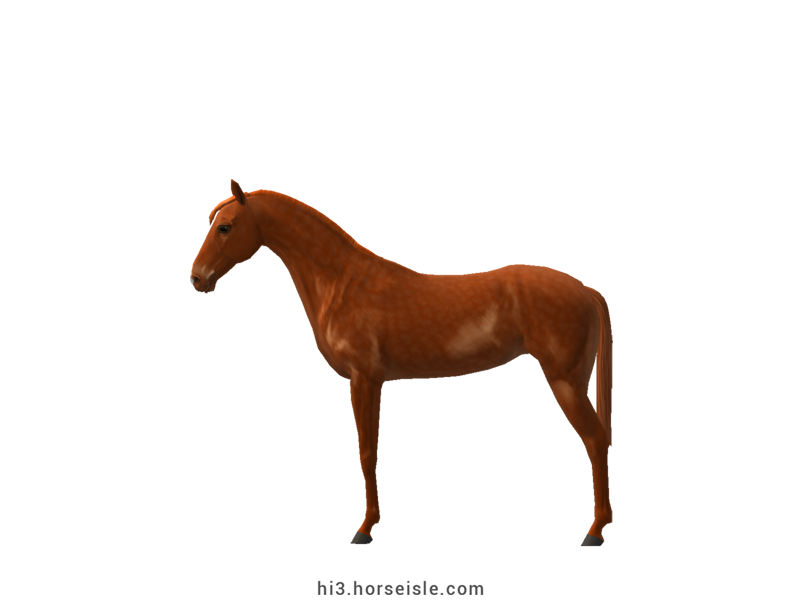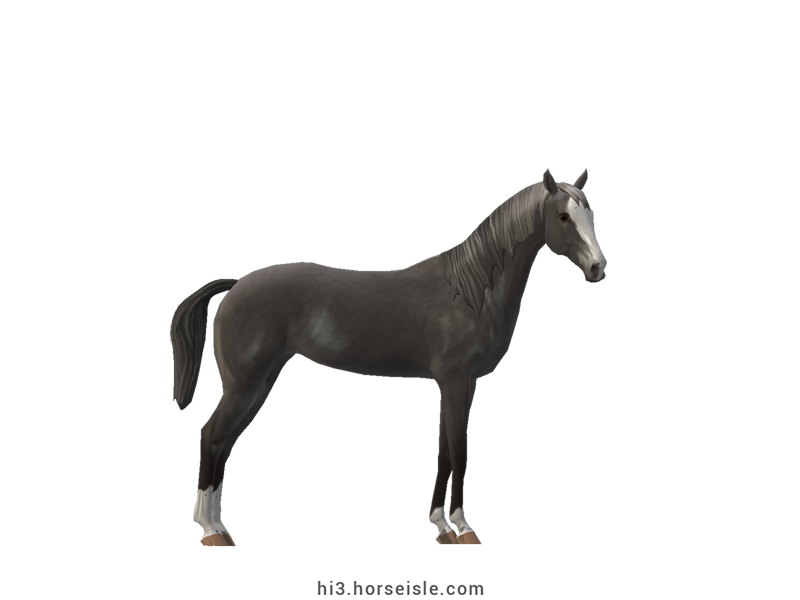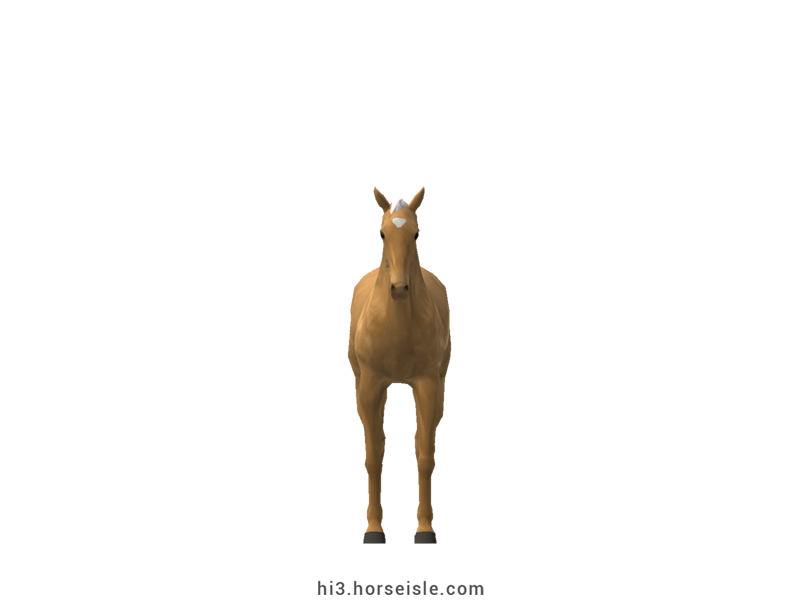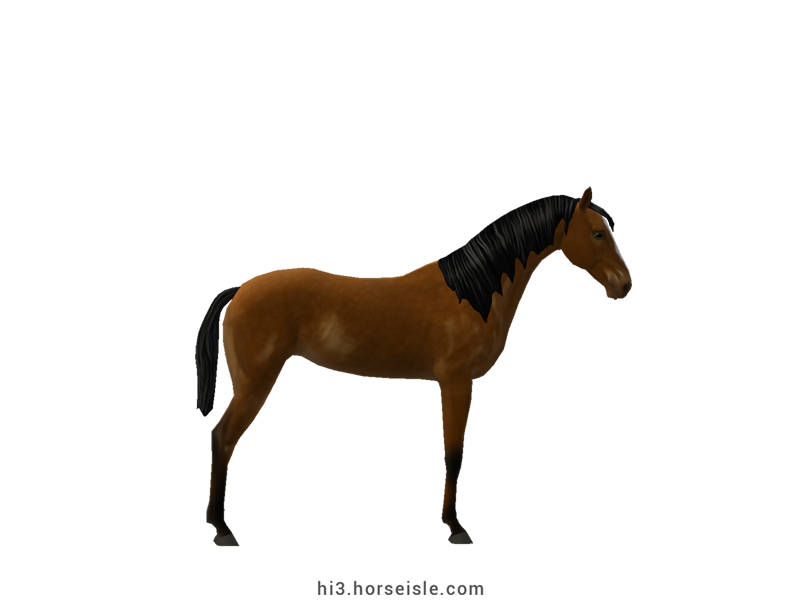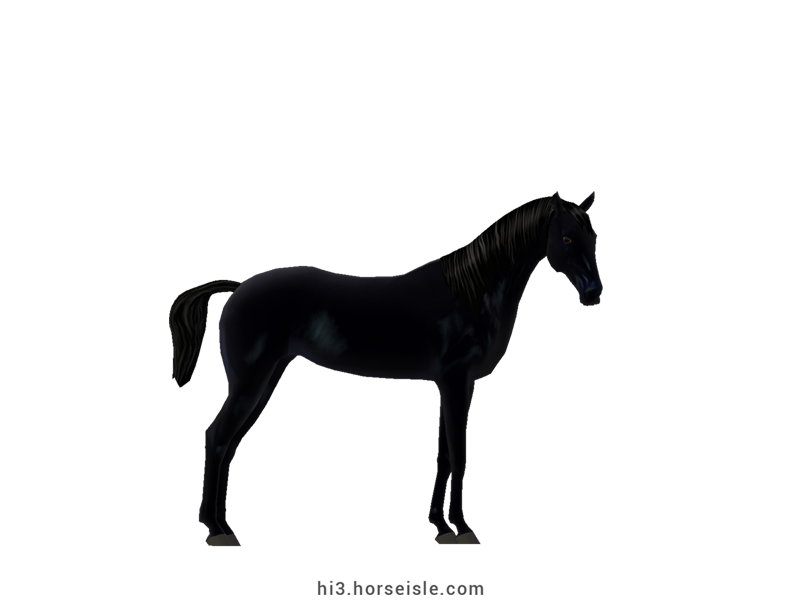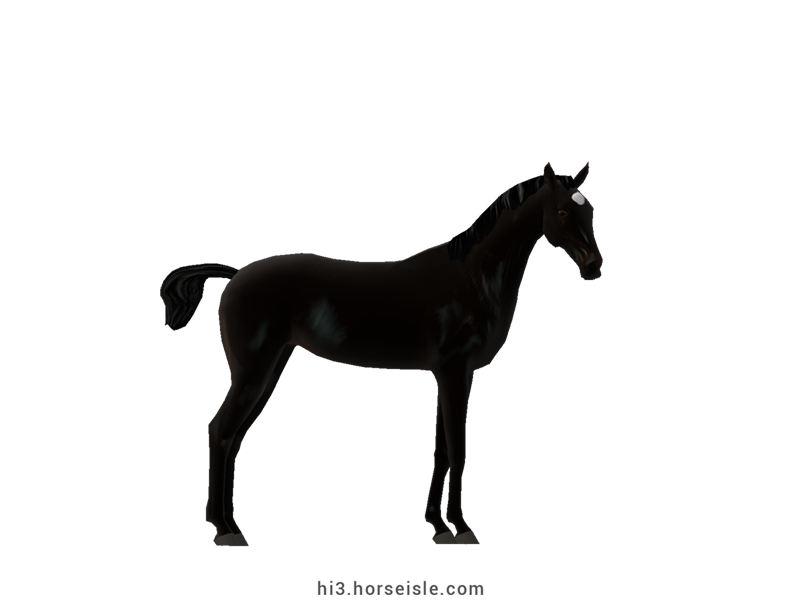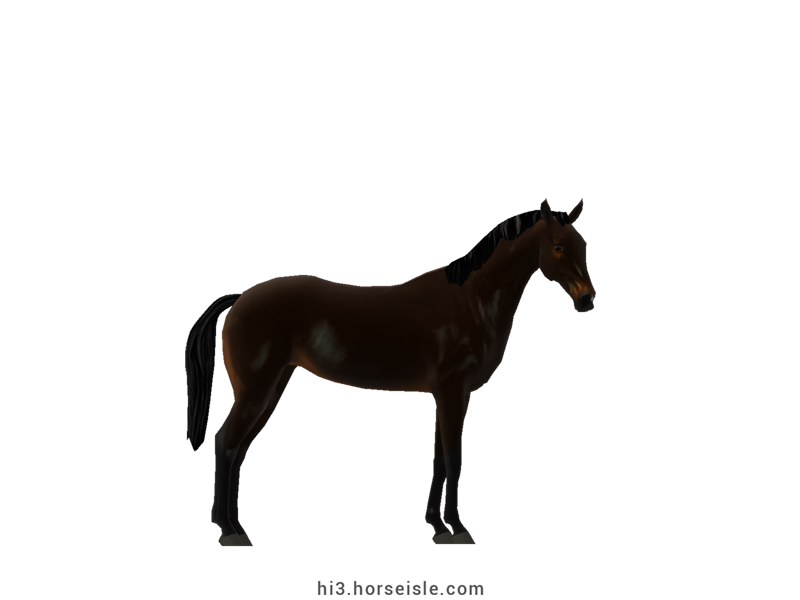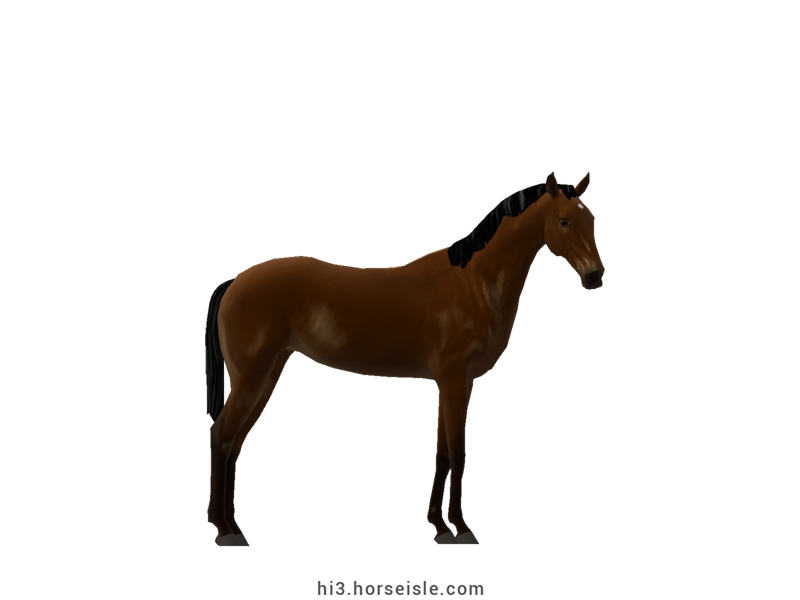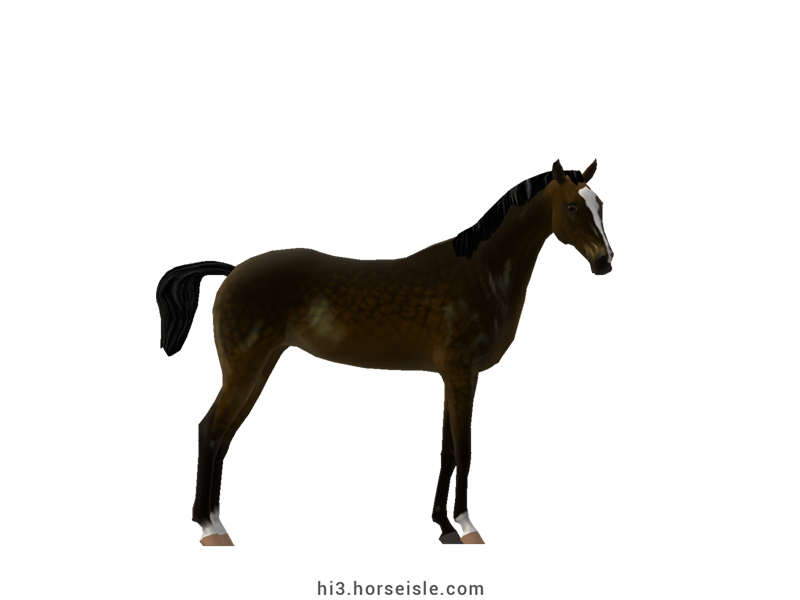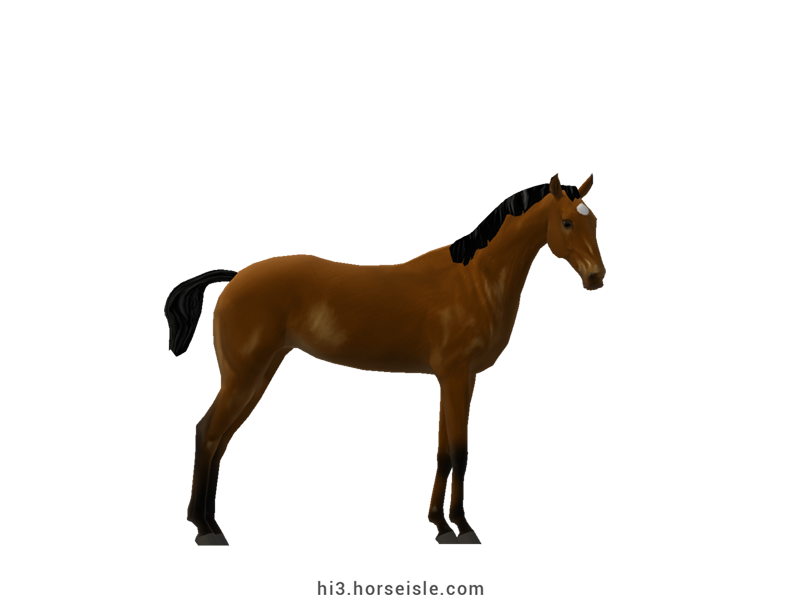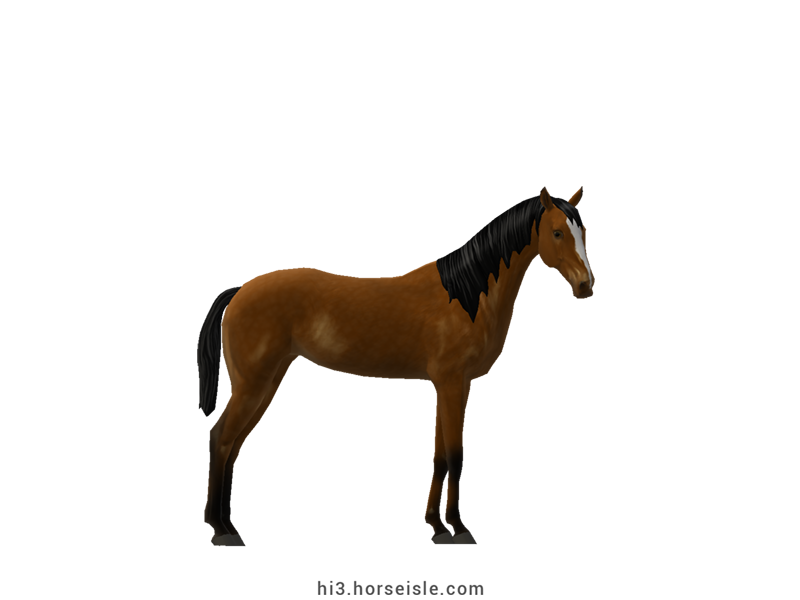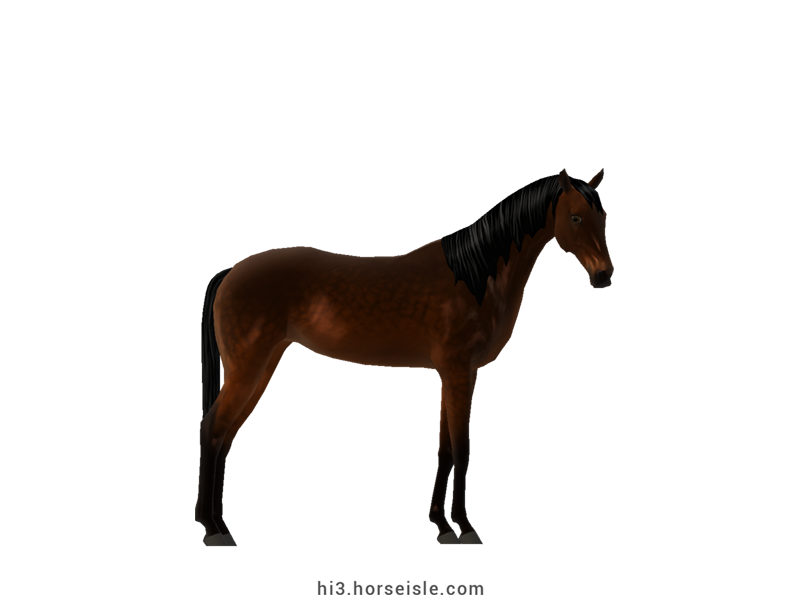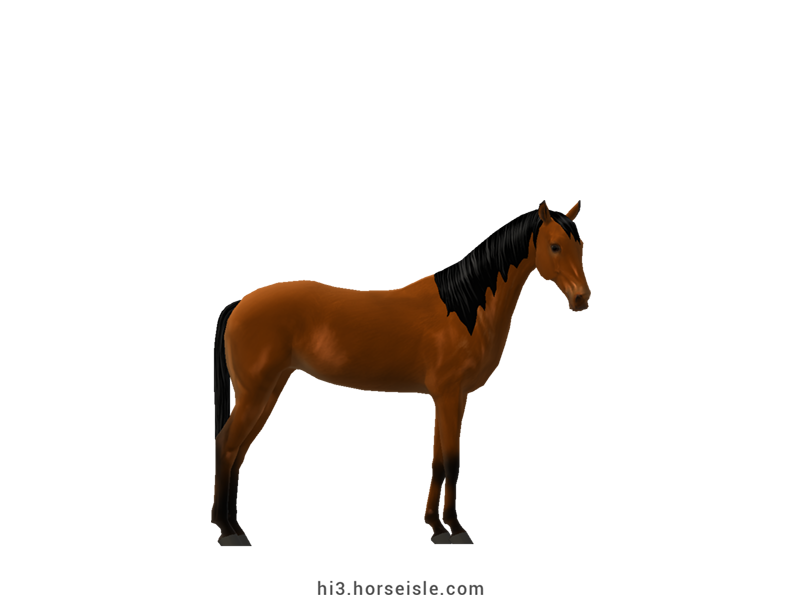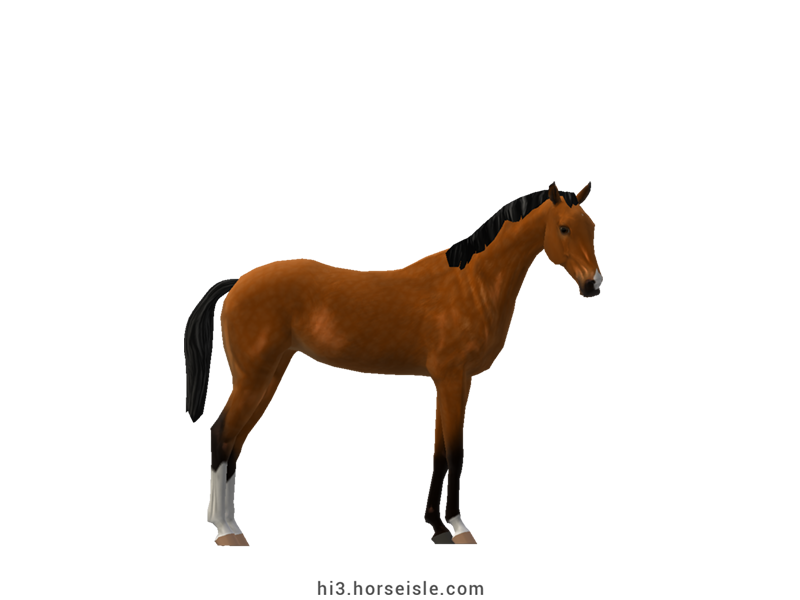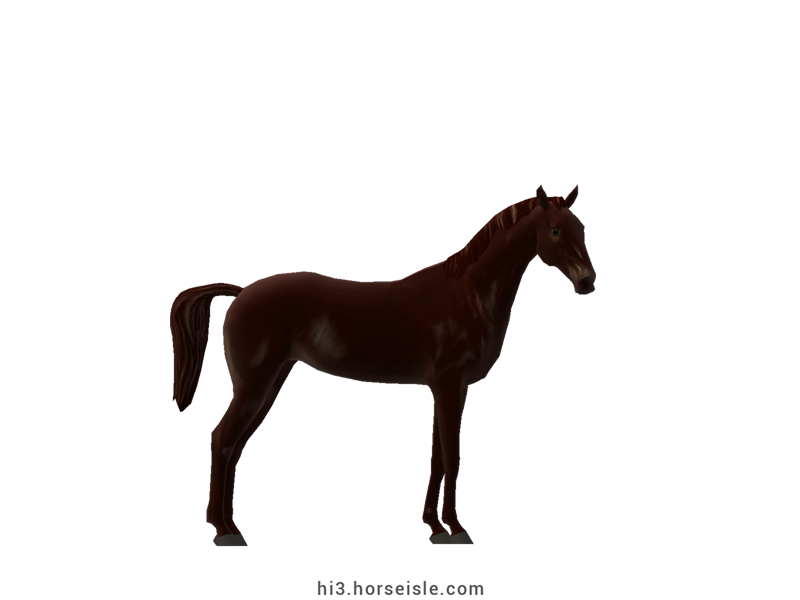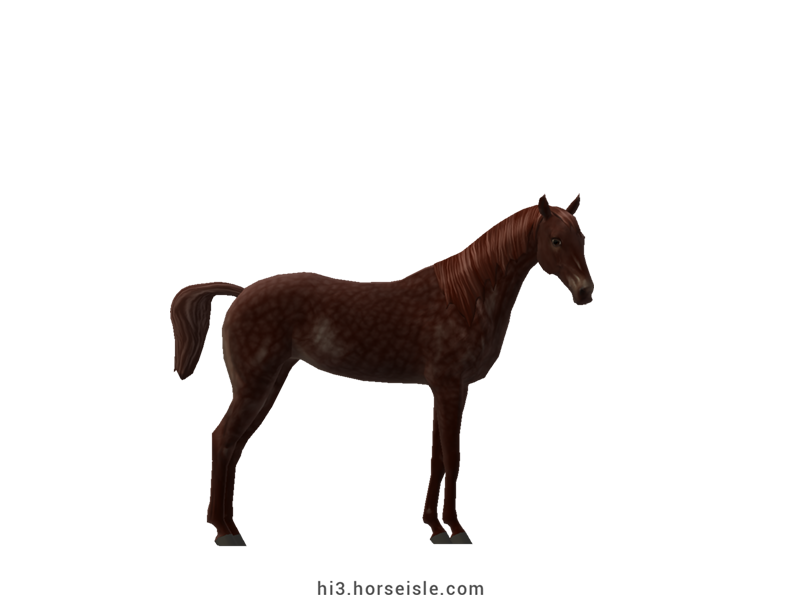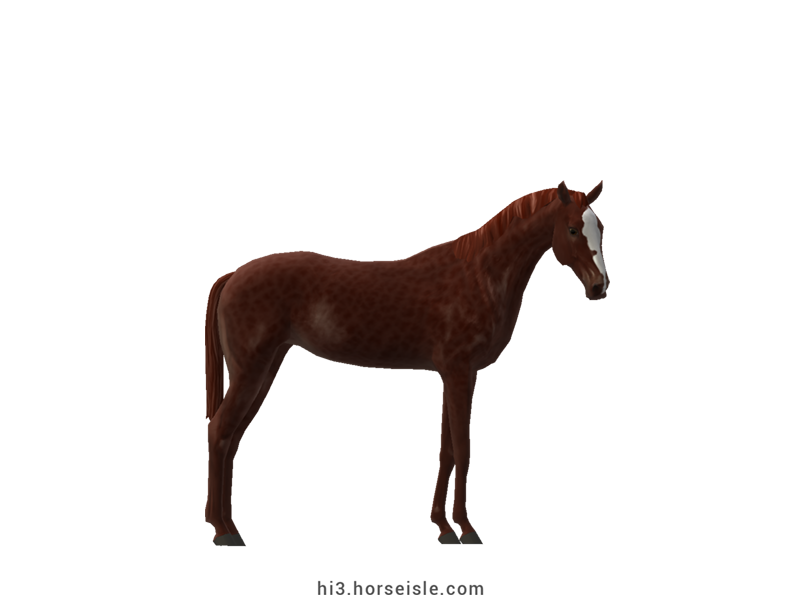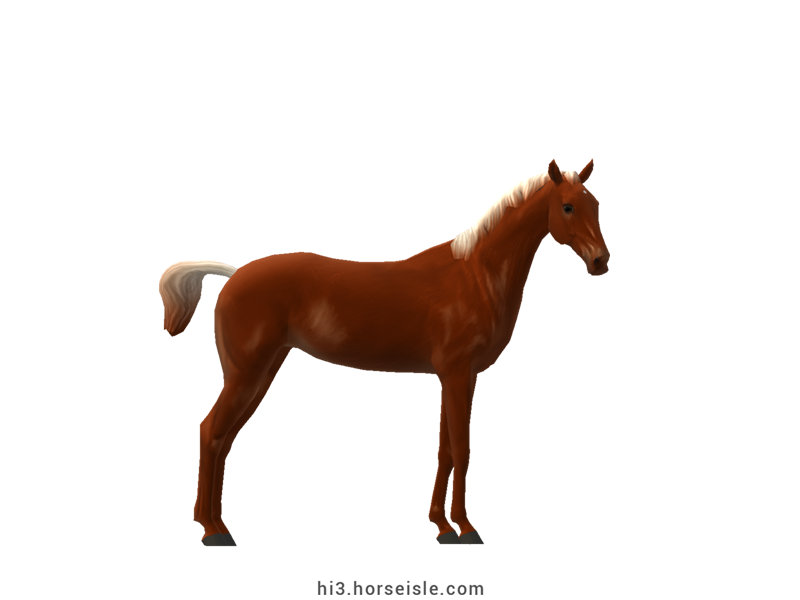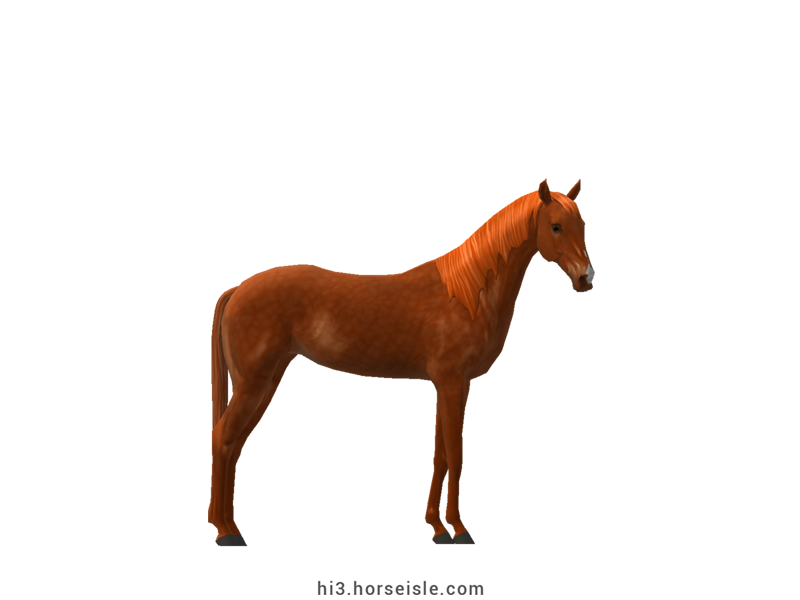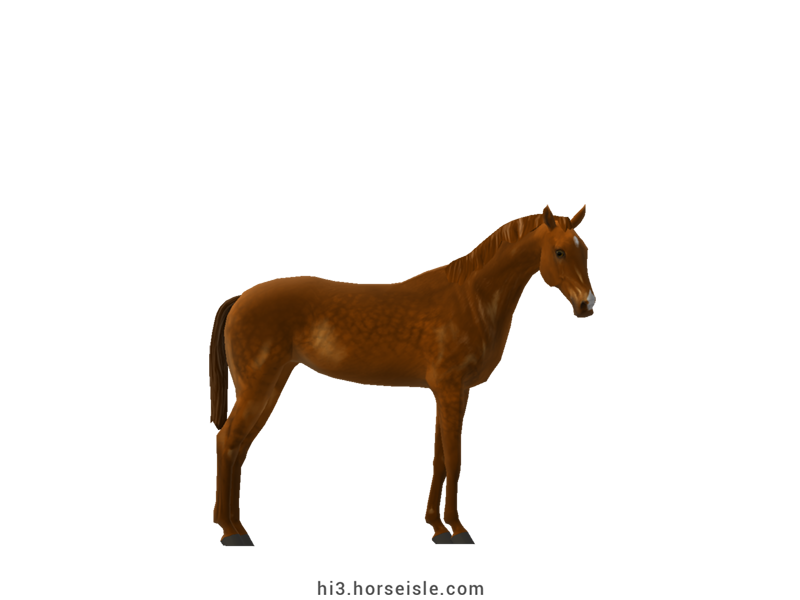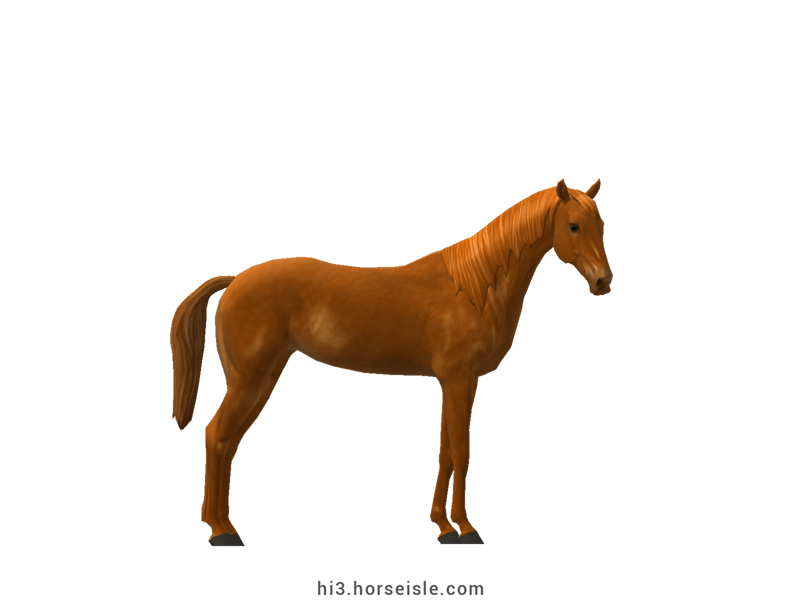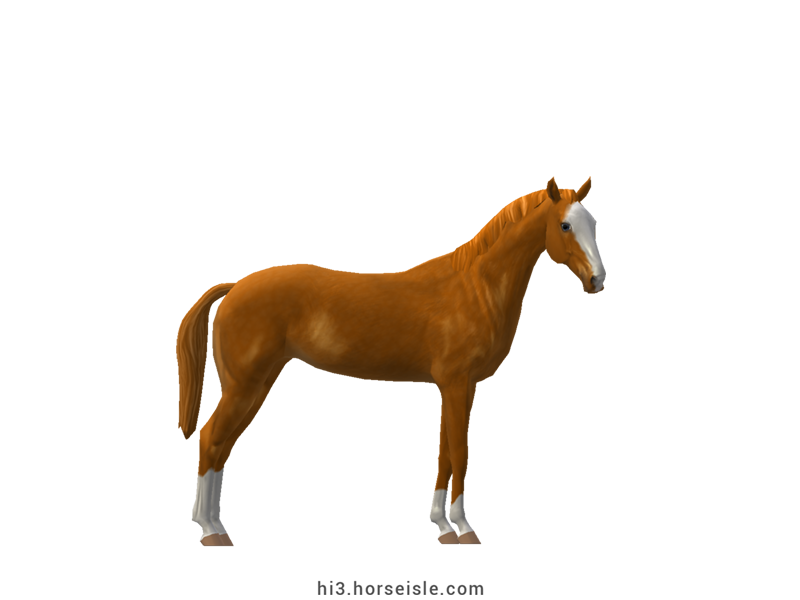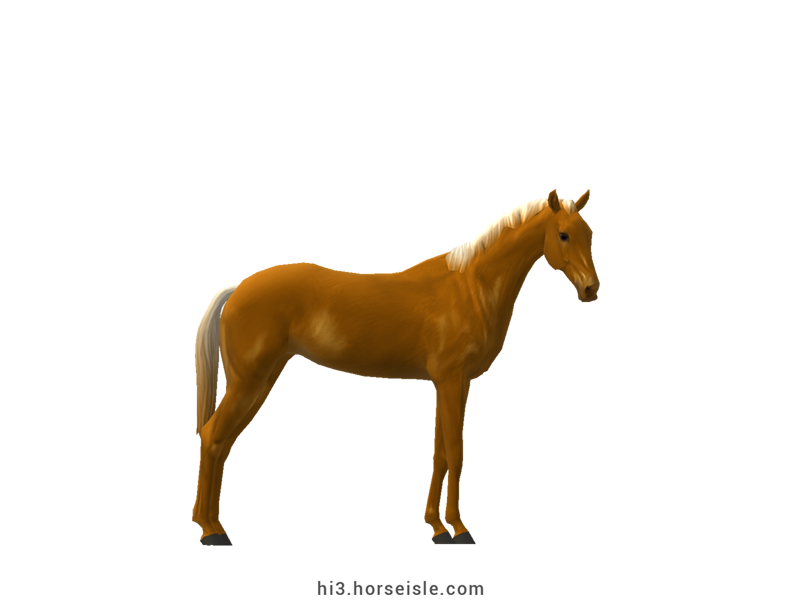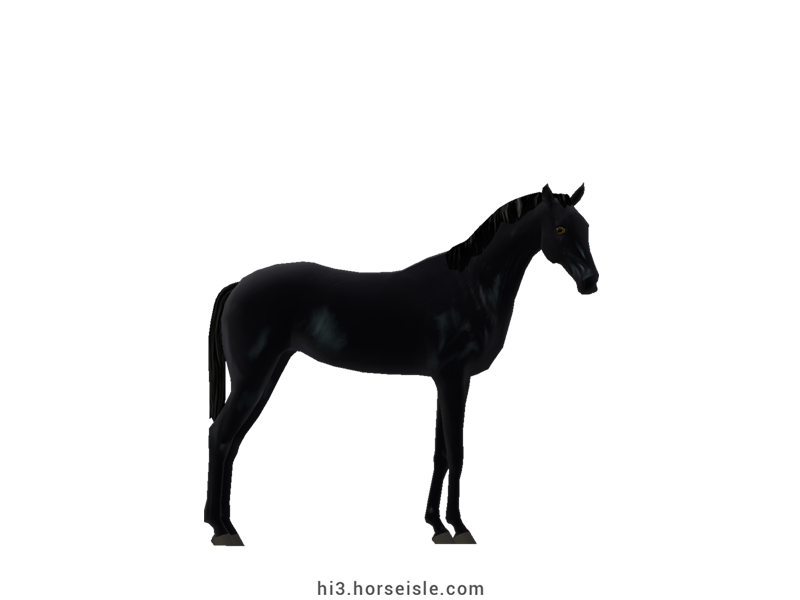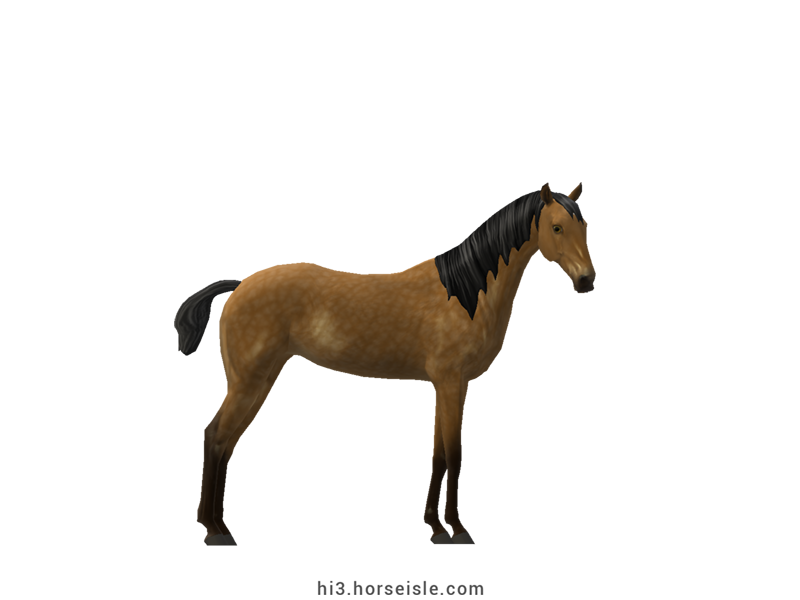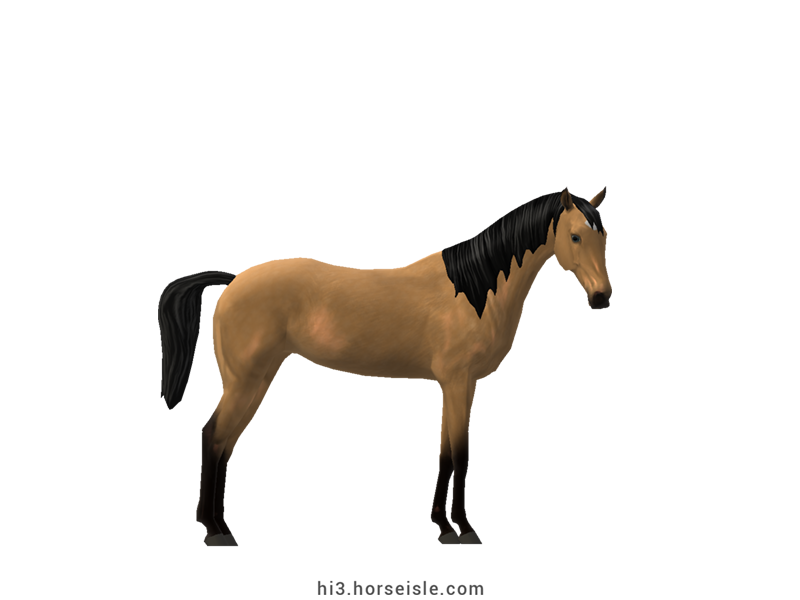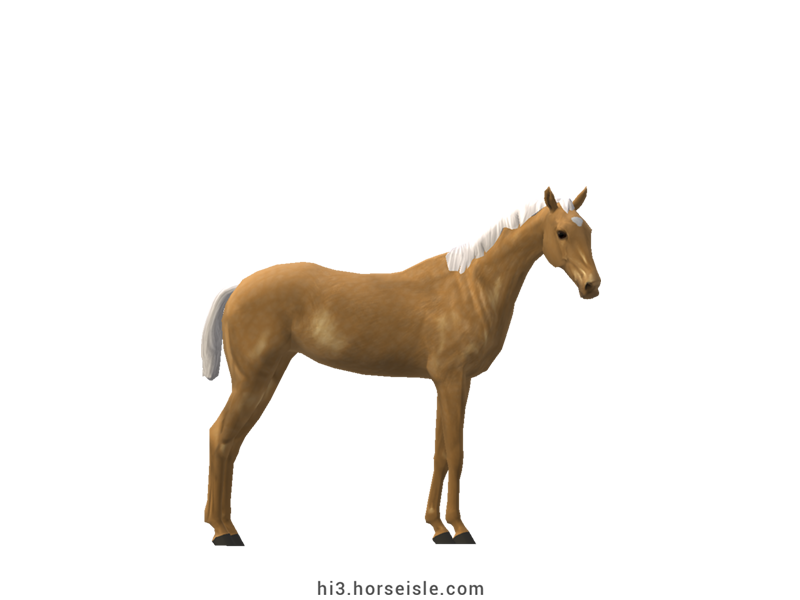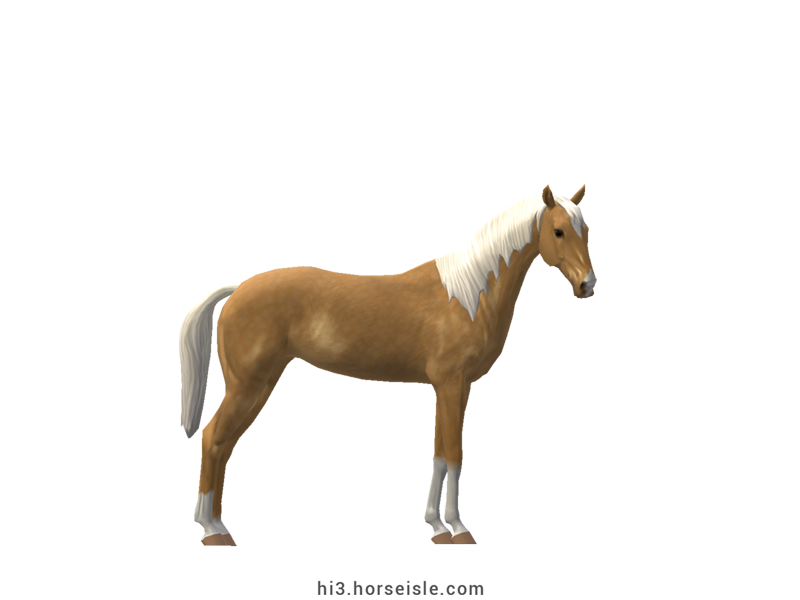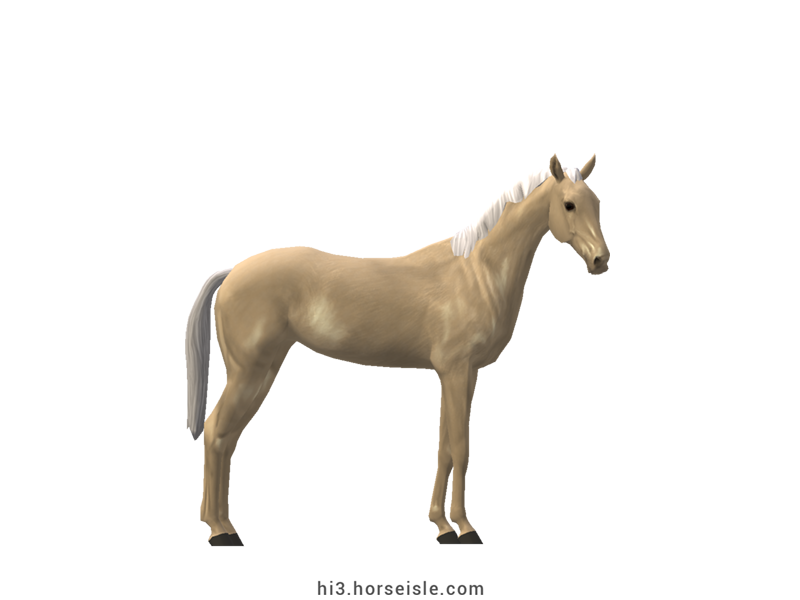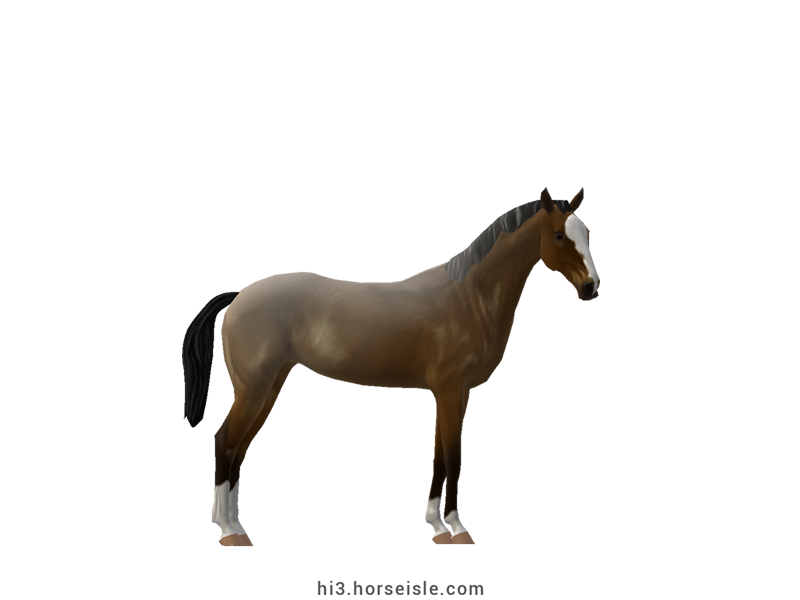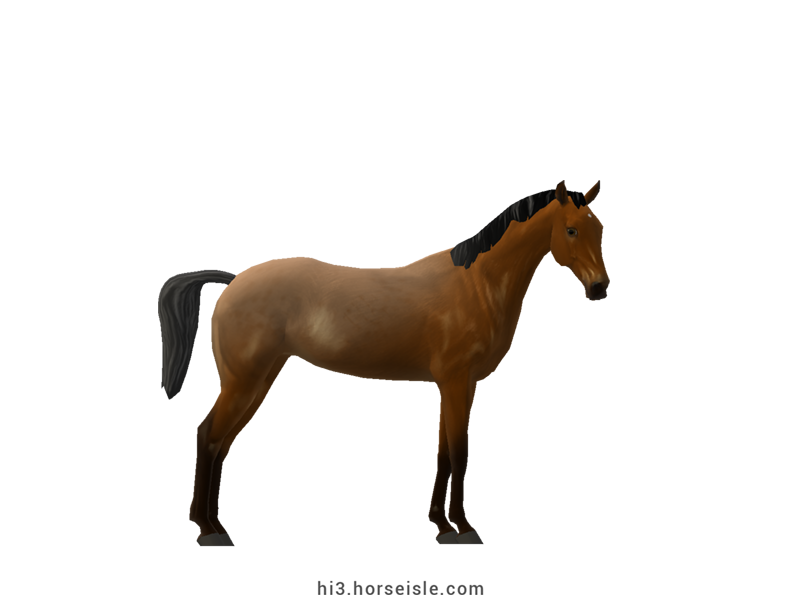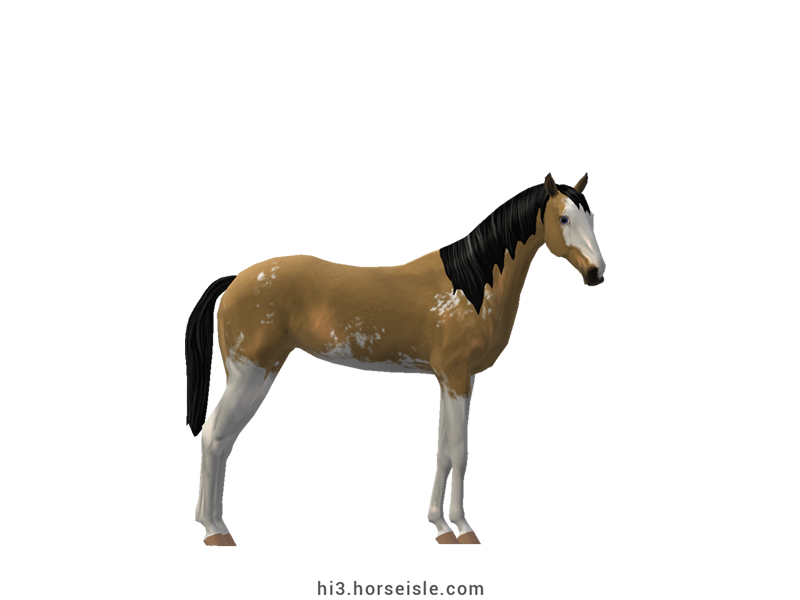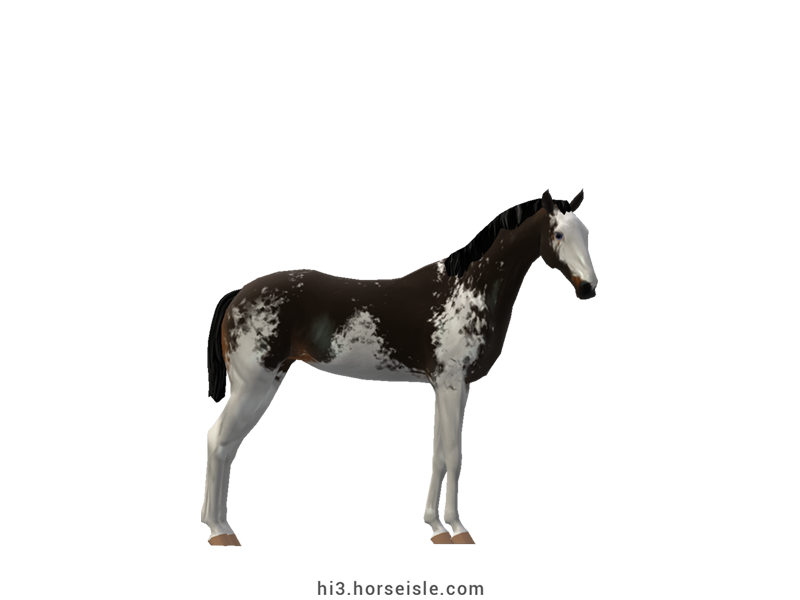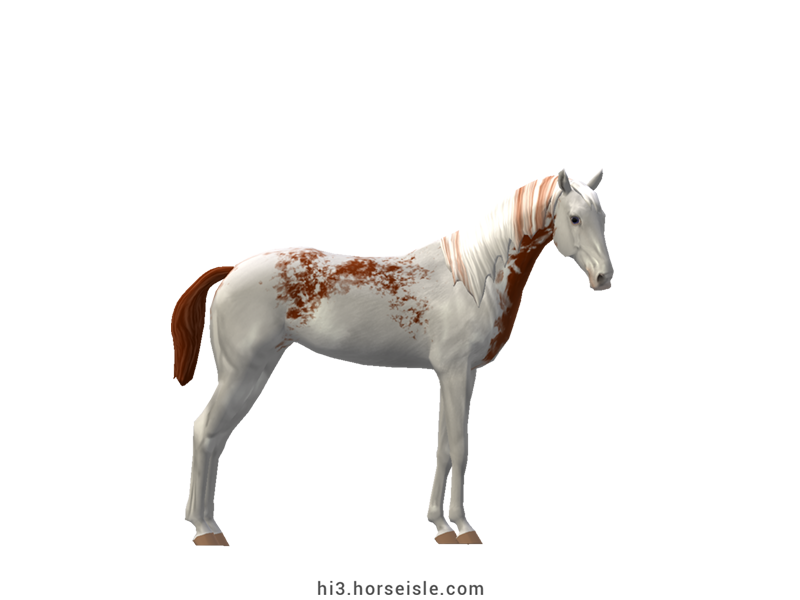Our Massive Real World Equine Reference!
[ INDEX ] Equine Type: Horse Breed: Artistic Sporthorse [ PREV ] [ NEXT ]
The 18th- (and early 19th-) century sporthorse - art vs. reality:
A good example of the typical sporthorse depicted in portraits is James Seymour's Mr Russell on his Bay Hunter, which depicts a most lovely bay sporthorse whose face is decorated with a stripe and whose legs (save for the front-right one) sport white socks.
This charming hunter has an overall balanced conformation. The head is slender but the eyes are large, the neck is long and arched in a moderate manner, and the body is long and slender to a neat degree, similar to the legs that are long and slender but not extremely so.
Indeed, Mr. Russell's horse is one of the more realistic depictions we have of sporthorses from 18th century England. However, it is not a typical example of the type of sporthorses often depicted in paintings dating to the 18th century and early-19th century England.
Traits like longness and slenderness were valued at the time, and equestrian painters often exaggerated these in the equestrian subjects of their portraits. In Horse Isle, we based the Artistic Sporthorse on these exaggerated examples.
A light head for a light horse:
The vast majority of paintings depict horses with slender heads. Usually, the jaw will be slender, but if the jaw is deep then the front will be narrow. The eyes are usually large, but the ears are tiny and located right at the top of the poll. The ears are either pricked forward or rotated back, the latter usually occurs when the horse is being ridden.
Charles Towne's portrait of "Abba Thule" shows the profile of a typical artistic head, while his portrait of Hunter and Huntsman gives a nice angle of the front. John Nost Sartorius's Eclipse with Jack Oakley up is another excellent example.
Thomas Spencer's Race Horse Jockey up on Newmarket Heath is an example of an interesting variation that still follows the principle of 'overall slenderness'. The head has a deep jaw and a broad forehead, but the muzzle is so slender that the nostrils are barely visible. This balances the overall appearance of the head and maintains its overall slender look. Needless to say, the eyes are large but the ears are tiny.
A long and graceful neck is an absolute must:
It seems that all portraits agree on one thing: the ideal sporthorse has a long and arched neck. While the length of the neck and its degree of archness varies greatly, with some horses having a super-long swan neck while others have a milder arch, the neck is never short nor ewed.
Tilleman's Spruce and Bell and George Stubbs' Portrait of Joseph Smyth Esquire are perfect examples of the two variations of the long, arched necks that sporthorses of the time had. A more extreme example is Tilleman's Horse with Groom and Hounds.
In addition to being long and arched, the neck is also slender. The degree of slenderness varies among painters and horses, especially at the base of the neck. Some paintings, like James Seymour's Huntsmen and their hounds, give the horses a very slender base. Others, like Towne's "Abba Thule", give them a broad base. However, all of them ensure that the neck gets slender toward the head.
A flat girth:
While the appearance of the neck is largely uniform, the girth varies wildly between paintings. Some portraits show horses with a deep girth, Towne's Racehorse "Abba Thule" or Stubbs' Eclipse. Others give them a shallow one, as seen in George Stubbs' Lustre, Held by a Groom or John Wootton's A bay racehorse being rubbed down at Newmarket.
Regardless of its depth, in the vast majority in cases, the underline of the girth is usually straight, with some paintings, like Sartorius's Eclipse with Jack Oakley up, show horses with a completely flat underline.
Long and slender legs:
Sporthorses are the epitome of athleticism, a feat which is possible thanks to their long legs. Artists of the time knew that and ensured to highlight the long and slender legs that these horses have, sometimes to an excessive degree of which we took full advantage in Horse Isle.
Such an extreme version is Spencer's Race Horse Jockey up on Newmarket Heath which shows legs as thick as toothpicks. However, most paintings are not such extreme. Stubbs' The Countess of Coningsby in the Costume of the Charlton Hunt and Lustre, Held by a Groom are good examples of the slender legs seen in many of these portraits.
Not all portraits created the same:
Of course, not all portraits are that extreme, and many portraits depict horses that have a more balanced conformation. Thomas Spencer's Duke of Newcastle upon his horse, George Stubbs's Portrait of a Gentleman upon a Grey Hunter and William Anderson with two Saddle-Horses, as well as the aforementioned James Seymour's Mr Russell on his Bay Hunter are all excellent examples of such portraits.
Performance metrics:
The following are the: range, average, (SD), and MOE of performance metrics of ordered Artistic Sporthorses in Horse Isle (not bred ones). In rare cases,
Speed: 15.6-17.4, 16.5 (0.4), 0.07.
Sprint: 49-63, 55 (3), 0.59.
Accel: 0.99-1.17, 1.09 (0.04), 0.01.
Decel: 0.87-1.04, 0.97 (0.03), 0.01.
Jump: 5.16-5.44, 5.30 (0.06), 0.01.
Pull: 1.37-1.97, 1.61 (0.12), 0.02.
Turning: 54.27-68.34, 61.22 (3.09), 0.60.
Reverse: 2.4-3.0, 2.7 (0.1), 0.03.
Stamina: 44.94-49.57, 47.02 (1.08), 0.21.
Reaction: 0.78-0.87, 0.82 (0.02), 0.00.
Coats & Height:
Colors: bay, black, brown, chestnut, grey, and cream-dilutes.
Additionals: flaxen, minimal-mealy, roan, sooty, dark mane & tail. The coat is either solid, leopard, or white-spotted sabino.
* not brindle.
Height: 14hh to 16hh.
[ INDEX ] [ PREV ] [ NEXT ]

